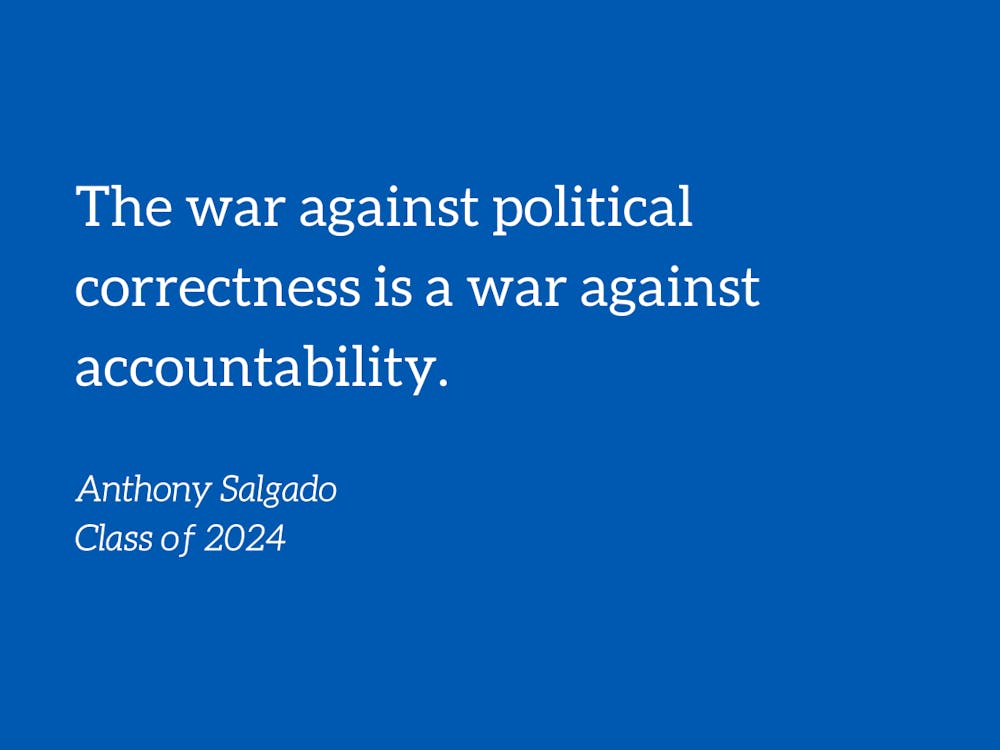Political correctness (PC) and cancel culture are deeply intertwined in today’s political climate. Cancel culture is the act of ostracizing a group from social or economic activity because of unacceptable views, while political correctness is the changing of one’s rhetoric to promote inclusivity. These two terms have dominated conservative news networks for the last few years. Even recently, Ohio representative Jim Jordan has called a judiciary hearing to debate cancel culture's use of “political correctness” to “censor” the Right. However, this is an untrue and malicious use of these words to phrase inclusive social norms as extreme.
In the early days of the term, “political correctness” referred to strict Nazi-approved views of government. Leftists often used the term in irony to point out the flaws and self-contradictions of a variety of movements. A more modern example of this is men trying to define sexuality and feminism in the pro-pornography movements of the 1980s. During this time, the term “politically correct” was employed as an insult to criticize men presiding over legislation that primarily affected females and their sexual freedom. Obviously, the word and its meaning have transformed and now represent a very different set of views. In the modern era, political correctness is understood to be avoiding expressions or actions in order to not exclude or harm others. Nevertheless, even Oxford Language’s definition (which is used by Google) seems to suggest that it is extreme to revise your rhetoric and respect others. Oxford Language states that political correctness is “often considered as taken to extremes.” Frankly, this definition is flawed and reveals society’s viewpoint that changing one’s rhetoric to help others feel accepted is excessive.
Additionally, the Right has intentionally further distorted the meaning of PC. In many right-wing communities, the history of the term “political correctness” fuels distaste for more inclusivity. Energized by conspiracy theories such as cultural Marxism, blatantly racist and anti-Semitic views have thrived. This meaning of the term has been weaponized and adapted to fit a narrative that was never intended. While PC originally described conformity to white, heterosexual and Christian views, it is now being lobbed by the Right as an overcompensation for being concerned with issues surrounding racism, sexuality and inclusivity. In particular, the Right has attacked multiculturalism. It is no wonder why our own former Secretary of State Mike Pompeo stated that “Woke-ism, multiculturalism, all the -isms — they're not who America is. They distort our glorious founding and what this country is all about.” In doing this, Pompeo wages a war on issues about race and multiculturalism as a cover for justifying the harmful systemic practices surrounding immigration and reform. Furthermore, while Trump was president, the Right actively tried to pull public school funding from curriculums who put issues surrounding slavery and immigration at the forefront. The strategy of labeling any form of systemic oppression as “political correctness” sets a dangerous precedent. This is because the Right can decry cancel culture as political correctness, while simultaneously participating in the behavior they are critical of. Essentially, they try to “cancel” the issues of marginalized communities, but then criticize processes such as censure that happen within their own party. However, instead of attacking those who hold extreme views that don't follow modern social norms, they target things such as school funding, healthcare and economic development.
Moreover, political correctness has also been viewed as the enemy of the First Amendment. This couldn’t be more contradictory and is one of the most politically prominent straw man arguments in the current landscape. This argument that political correctness violates the first amendment originates from Alan Bloom, who argued that college campuses were a place of linear thought and dwindling freedom. Bloom made a point to target increasing diversity as the reason why liberal arts universities at the time were changing. He used racist and vile rhetoric against minorities on campus, and his essays are littered with racial prejudice. Despite being a champion of conservative ideology, his dismissiveness of racial equity was appalling. It is astounding how his lack of acceptance of other races is exactly how the definition of political correctness has changed. An example of this can be seen recently by the dismissal of The Bachelor host, Chris Harrison. He denied racist power structures and the history of antebellum South were truly harmful because such a history was simply made up by the “woke police.” By treating these issues as frivolous, the Right is underplaying the impact that many feel today of systemic racism. Denying a major part of American history is conspiracy and blatantly racist revision, not a debatable set of political views.
The war against political correctness is a war against accountability. Whether it be Marjorie Taylor Greene wearing a censorship mask on public television to an audience of millions or Trump releasing a widely reported and viewed press release about being censored on social media, the outcry by the Right couldn’t be more contradictory. Freedom of speech is not freedom from consequence. Inclusive actions should not be seen as some sort of religious or cultural war. It is doubly ironic how the Far-Right has dubbed the Left as ultra-sensitive, yet believes in the war on Christmas and actively contributed to “canceling” Colin Kaepernick. In this way, the Right pursues its own form of cancel culture against those who do not agree with their nationalistic views and reverence of the constitution. In fact, the guiding views behind their form of cancel culture heavily align with the original interpretation of political correctness, before it was butchered and misrepresented by conservative authors.
Anthony Salgado is a Trinity first-year. His column typically runs on alternate Fridays.
Get The Chronicle straight to your inbox
Signup for our weekly newsletter. Cancel at any time.

